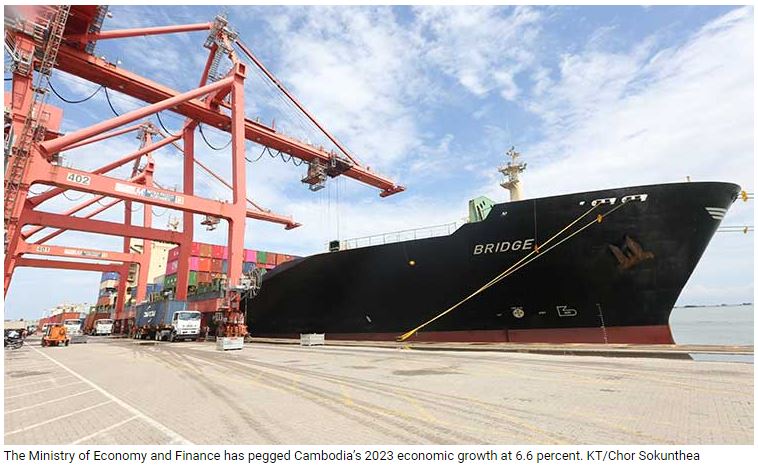ASEAN recovery in 2023 may pay for Fed rate hikes, China slump
Major ASEAN economies, which seem to be growing out of the Covid-19 pandemic impact, are likely to face tough growth prospects the next year due to hardening interest rates across the globe, particularly the rate hikes by the US Federal Reserve, and cooling Chinese economy mostly due to tough anti-Corona stance.
The overall gross domestic product (GDP) of Indonesia, Malaysia, the Philippines, Singapore, and Thailand may decline to 4.3 percent in 2023 against the JCER-Nikkei Asia June estimate of 4.8 percent.
The ASEAN growth rate may slow after a third-quarter peak and then fall to 4.3 percent in 2023, 0.5 points down from the previous survey, the recent JCER-Nikkei Asia survey says.
Though the survey by the Japan Center for Economic Research (JCER) and Nikkei Asia did not cover the other five ASEAN economies, including Cambodia, given the close trade and investment links and inter-connectedness of economies, they are unlikely to escape the impact, feel experts.
Their inter-connectedness with China, the world’s second-largest economy after the USA, also may cost them in terms of economic expansion next year.
Most multilateral agencies see decent growth for Cambodia this year, but given the discernable global headwinds, they hardly shy away from moderating the economic expansion rate for the next year. For example, the Asian Development Bank has maintained the economic growth forecast for Cambodia at 5.3 percent in 2022 but lowered the 2023 forecast to 6.2 percent from 6.5 percent due to weaker global growth.
The Ministry of Economy and Finance has pegged Cambodia’s 2023 economic growth at 6.6 percent, and the gross domestic product per capita at $1,924 for the year.
Economists and experts from the five ASEAN member states and India, who participated in the survey conducted in September, revised down the 2023 growth forecasts for Southeast Asia’s five biggest economies over concerns about a global slowdown amid rising interest rates in the US.
The outlook for Indonesia for the next year was lowered to 4.9 percent from 5.1 percent, Malaysia to 4 percent from 4.6 percent, the Philippines to 5.4 percent from 5.6 percent, Singapore 2.2 to percent from 3.5 percent, and Thailand to 3.7 percent from 4.4 percent
(June estimate).
Meanwhile, in 2022 these five countries are estimated to register an economic growth rate of 5 percent, which is the same as forecast by the previous survey in June. The economists expect Indonesia to grow by 5.1 percent, Malaysia by 6.9 percent, the Philippines by 6.5 percent, Singapore by 3.8 percent, and Thailand by 3.2 percent, says the JCER-Nikkei Asia survey.
“The US Federal Reserve is expected to raise interest rates further to tame domestic inflation. Asian currencies are expected to fall in value on the back of that, which will in turn push central banks to hike rates.
“When the Fed raised interest rates by 75 basis points in September, central banks in Thailand, Malaysia, Indonesia, and the Philippines followed suit. The Monetary Authority of Singapore in July also tightened its monetary policy,” said the authors of the report.
“The US slowdown and a consequent fall in consumption could lead to weaker exports from Asia, which would weigh on regional growth next year,” has been the common refrain of economists. Also, a US slowdown could lead to weaker exports from Asia, which would weigh on Asian economic growth in 2023.
Uncertainty over the Chinese economy also weighs on Southeast Asia as the world’s second-largest economy is not showing any sign of easing its strict zero-Covid policy amid concerns over a crisis in its real estate sector, says the report.
“The possibility of a Chinese economic slowdown has grown into a significant risk for the Asian economy. Asian countries may face the challenge of sustaining their economies, compensating for exports through increased domestic investment,”
says the JCER-Nikkei Asia survey.
Source: https://www.khmertimeskh.com/501192894/asean-recovery-in-2023-may-pay-for-fed-rate-hikes-china-slump/


 English
English




